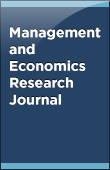


To comprehend Sino–US trade relations, this research article decrypts the trade relations among China and the United States from the American government perspective (Presidency of Donald Trump). The American government claims that the Chinese government’s high import levies and subsidies to Chinese firms cause the Sino–US trade war, bringing about economic misfortunes in the United States. The American government thus contends that forcing high levies on Chinese products (imports) can be corrective measures for Chinese governments’ actions. This research article discovers that the American administration overestimates the deficits. Measures for diminishing China’s imports cannot raise the American employment rate; on the contrary, China furnishes the United States with high caliber and low-cost products and services. Although China is one of the top investors for the United States, Chinese capitalists tend to capitalize the surplus by investing in American ventures and bonds. However, American administration limits Chinese capitals because of security concerns supported by various other nations (i.e., France, Germany, Britain, Australia, the European Union, Australia, Canada, and Japan). The fear for Chinese capitalists due to China’s moving up to the high end of the value chain is an outcome of economic advancement. Consequently, the two nations should restrategize Sino–US trade patterns by developing trade and economic co-ordination by means of trade arrangements.